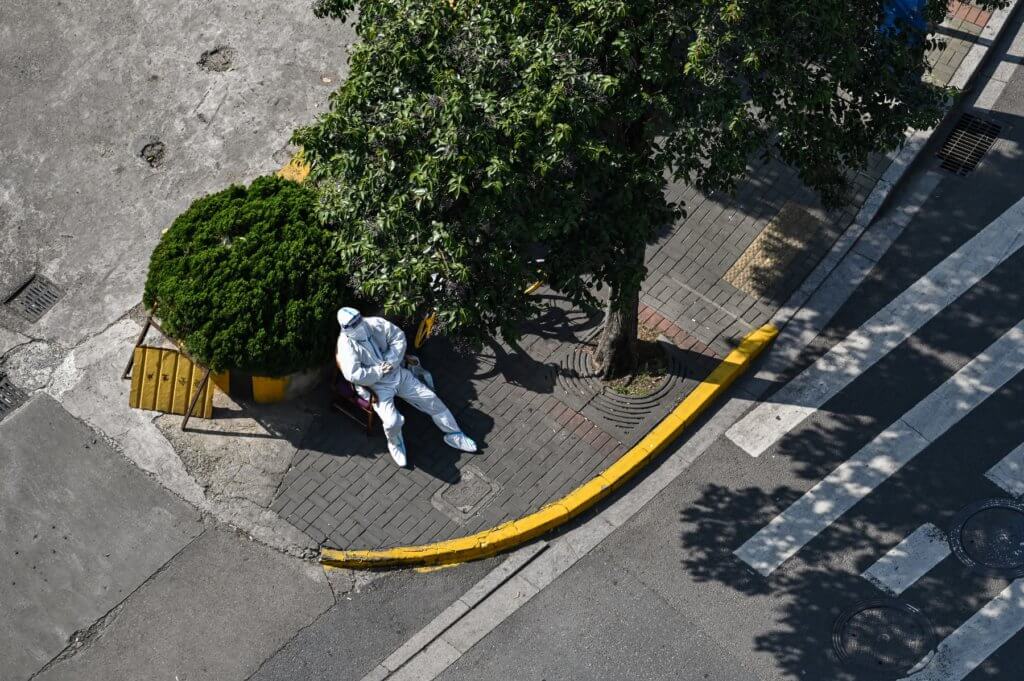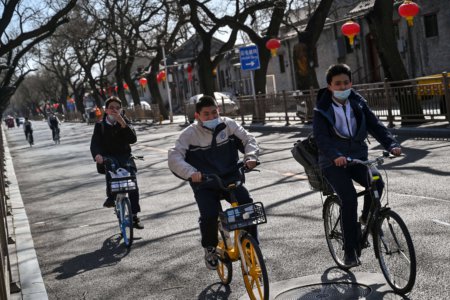
Officials have imposed a Shanghai lockdown amid a surge in COVID-19 cases in China’s most populous city. The global financial hub is undergoing a two-stage lockdown on the city’s more than 26 million residents.
Quoting local reports, Reuters reported that military and healthcare workers had been sent to Shanghai to conduct COVID-19 tests for all of its residents on Monday.
The Associated Press said the lockdown would be China’s most extensive since Wuhan — ground zero of the pandemic. The virus was first detected in the city in late 2019, confining its 11 million people to their homes for 76 days in early 2020.
Under the Shanghai lockdown, residents will be required to stay home; deliveries will be left at checkpoints to ensure no contact with the outside world. Public transport will be suspended while non-essential businesses will be closed.

According to reports, China has sent the military and thousands of healthcare workers into Shanghai to execute COVID-19 tests for its 26 million residents on Monday. Source: Hector Retamal/AFP
How will the Shanghai lockdown affect international students?
The Shanghai lockdown suggests that China will not be moving away from its zero-COVID strategy anytime soon.
International students have been desperate to return to China for over two years, but the country’s tough border closures has meant that most travellers cannot return to the country.
According to reports, however, South Korean students were granted an exemption to return. According to China’s education ministry, there were nearly 500,000 international students in China in 2018, with more than half from Asia.
Students have been voicing their frustrations over the lack of support and information by Chinese universities and authorities over their return using the #TakeStudentsBacktoChina hashtag on Twitter.
China International Student Union’s (CISU) recent student survey, “How the China Travel Ban has Affected the Lives of International Students”, gave some insights into what students have been experiencing due to China’s prolonged border closure.
Many respondents have claimed that their mental and physical health has declined because of China’s travel ban.
Students have not been able to gain practical experience for their MBBS programme and experience less sleep due to the time difference between China and their home countries. More than 50% of students said that their mental health has significantly declined due to China’s travel ban.
Almost 47% of survey respondents would not recommend China as a study or travel destination to their friends and family; in comparison, only 25% said they would.
Foreign Ministry Spokesperson Zhao Lijian previously said in a press conference that China is “coordinating arrangements for a small number of foreign students with actual needs to return to China in light of the changing international epidemic situation and the characteristics of the students’ majors”.
“The students concerned must strictly comply with China’s epidemic prevention protocols,” he said.
Shanghai is home to some of the country’s top universities, including Fudan University, NYU Shanghai and China Europe International Business School (CEIBS).










